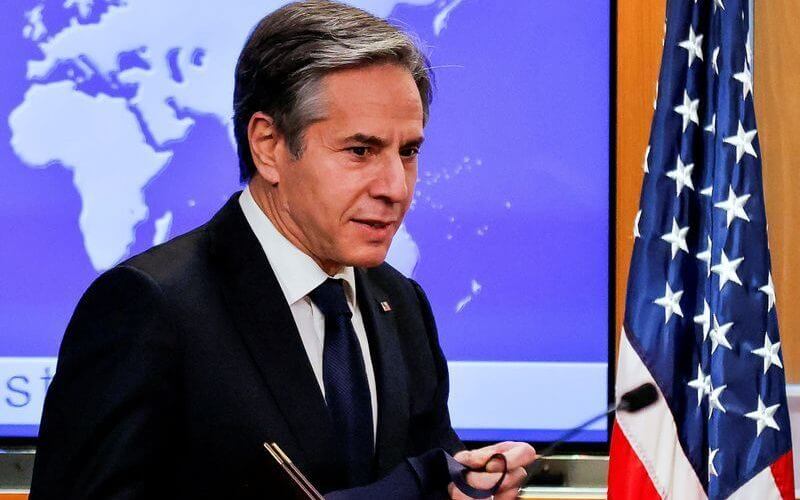U.S. Secretary of State Antony Blinken labeled the Golan Heights a crucial territory for Israel’s security but questioned the Trump administration’s 2019 recognition of the territory as part of Israel while also failing to explicitly address whether the U.S. would support the Palestinians moving their capitol to East Jerusalem.
“As a practical matter, the Golan is very important to Israel’s security. As long as Assad is in power in Syria, as long as Iran is present in Syria, militia groups backed by Iran, the Assad regime itself – all of these pose a significant security threat to Israel, and as a practical matter, the control of the Golan in that situation I think remains of real importance to Israel’s security,” said U.S. Secretary of State Antony Blinken in an interview with CNN’s Wolf Blitzer this week.
Blinken left the legality of Israel’s right to the Golan Heights up in the air, indicating a lack of support for the Trump administration’s previous decision to support Israel’s sovereignty in the territory.
“Legal questions are something else. And over time, if the situation were to change in Syria, that’s something we’d look at. But we are nowhere near that,” Blinken continued.
Prime Minister Benjamin Netanyahu did not accept Blinken’s assessment, issuing a statement Tuesday in response:
“The Golan was and will remain part of Israel. With an agreement, without an agreement, we are not coming down from the Golan. It will remain a sovereign part of the State of Israel,” said Netanyahu, expressing Israel’s commitment to maintaining sovereignty over the land it obtained in its “war of self-defense” against Egypt, Jordan, and Syria in 1967.
Following Trump’s recognition of the Golan Heights as Israel, Netanyahu praised the U.S. for its partnership, expressing the importance of the action “to translate [Israel’s] military victory into a diplomatic victory,” calling it a “historic justice.”
“Israel won the Golan Heights in a just war of self-defense, and the Jewish people’s roots in the Golan go back thousands of years,” said Netanyahu.
Blinken was also vague about whether the U.S. would support the Palestinians moving their capitol to East Jerusalem as part of a two-state solution, indirectly addressing the question by mentioning the need for negotiations between Israel and Palestinians to occur before this could be determined, where the warring sides are “unfortunately a ways away from at this point in time.”









